The Jazz Singer is a 1927 American musical film. As the first feature-length motion picture with not only a synchronized recorded music score, but also lip-synchronous singing and speech in several isolated sequences, its release heralded the commercial ascendance of sound films and ended the silent film era. Directed by Alan Crosland and produced by Warner Bros. with its Vitaphone sound-on-disc system, the film, featuring six songs performed by Al Jolson, is based on a play of the same name by Samson Raphaelson, adapted from one of his short stories, "The Day of Atonement".
| The Jazz Singer | |
|---|---|
Theatrical release poster | |
| Directed by | Alan Crosland |
| Produced by | Darryl F. Zanuck |
| Screenplay by | Alfred A. Cohn (scenario) Jack Jarmuth (titles) |
| Based on | The Jazz Singer (1925 play) by Samson Raphaelson |
| Starring | Al Jolson May McAvoy Warner Oland Yossele Rosenblatt |
| Music by | Louis Silvers |
| Cinematography | Hal Mohr |
| Edited by | Harold McCord |
Production company |
|
| Distributed by | Warner Bros. Pictures |
Release date |
|
Running time | 89 minutes 96 minutes (with Overture and Exit Music) |
| Country | United States |
| Language | English |
| Budget | $422,000 |
| Box office | $2,625,000 (gross rental) |
The film depicts the fictional story of Jakie Rabinowitz, a young man who defies the traditions of his devout Jewish family. After singing popular tunes in a beer garden he is punished by his father, a hazzan (cantor), prompting Jakie to run away from home. Some years later, now calling himself Jack Robin, he has become a talented jazz singer. He attempts to build a career as an entertainer but his professional ambitions ultimately come into conflict with the demands of his home and heritage.
Darryl F. Zanuck won an Honorary Academy Award for producing the film; Alfred A. Cohn was nominated for Best Writing (Adaptation) at the 1st Academy Awards. In 1996, The Jazz Singer was selected for preservation in the National Film Registry of "culturally, historically or aesthetically significant" motion pictures. In 1998, the film was chosen in voting conducted by the American Film Institute as one of the best American films of all time, ranking at number ninety.
Screenplay
This article's plot summary may be too long or excessively detailed. (June 2017) (Learn how and when to remove this template message) |
Cantor Rabinowitz wants his son to carry on the generations-old family tradition and become a cantor at the synagogue in the Jewish ghetto of Manhattan's Lower East Side. But down at the beer garden, thirteen-year-old Jakie Rabinowitz is performing so-called jazz tunes. Moisha Yudelson spots the boy and tells Jakie's father, who drags him home. Jakie clings to his mother, Sara, as his father declares, "I'll teach him better than to debase the voice God gave him!" Jakie threatens: "If you whip me again, I'll run away—and never come back!" After the whipping, Jakie kisses his mother goodbye and, true to his word, runs away. At the Yom Kippur service, Rabinowitz mournfully tells a fellow celebrant, "My son was to stand at my side and sing tonight – but now I have no son." As the sacred Kol Nidre is sung, Jakie sneaks back home to retrieve a picture of his loving mother.
About 10 years later, Jakie has changed his name to the more assimilated Jack Robin. Jack is called up from his table at a cabaret to perform on stage.
Jack wows the crowd with his energized rendition. Afterward, he is introduced to the beautiful Mary Dale, a musical theater dancer. "There are lots of jazz singers, but you have a tear in your voice," she says, offering to help with his budding career. With her help, Jack eventually gets his big break: a leading part in the new musical April Follies.
Back at the family home Jack left long ago, the elder Rabinowitz instructs a young student in the traditional cantorial art. Jack appears and tries to explain his point of view, and his love of modern music, but the appalled cantor banishes him: "I never want to see you again — you jazz singer!" As he leaves, Jack makes a prediction: "I came home with a heart full of love, but you don't want to understand. Some day you'll understand, the same as Mama does."
Two weeks after Jack's expulsion from the family home and 24 hours before opening night of April Follies on Broadway, Jack's father falls gravely ill. Jack is asked to choose between the show and duty to his family and faith: in order to sing the Kol Nidre for Yom Kippur in his father's place, he will have to miss the big premiere.
That evening, the eve of Yom Kippur, Yudleson tells the Jewish elders, "For the first time, we have no Cantor on the Day of Atonement." Lying in his bed, weak and gaunt, Cantor Rabinowitz tells Sara that he cannot perform on the most sacred of holy days: "My son came to me in my dreams—he sang Kol Nidre so beautifully. If he would only sing like that tonight—surely he would be forgiven."
As Jack prepares for a dress rehearsal by applying blackface makeup, he and Mary discuss his career aspirations and the family pressures they agree he must resist. Sara and Yudleson come to Jack's dressing room to plea for him to come to his father and sing in his stead. Jack is torn. He delivers his blackface performance ("Mother of Mine, I Still Have You"), and Sara sees her son onstage for the first time. She has a tearful revelation: "Here he belongs. If God wanted him in His house, He would have kept him there. He's not my boy anymore—he belongs to the whole world now."
Afterward, Jack returns to the Rabinowitz home. He kneels at his father's bedside and the two converse fondly: "My son—I love you." Sara suggests that it may help heal his father if Jack takes his place at the Yom Kippur service. Mary arrives with the producer, who warns Jack that he'll never work on Broadway again if he fails to appear on opening night. Jack can't decide. Mary challenges him: "Were you lying when you said your career came before everything?" Jack is unsure if he even can replace his father: "I haven't sung Kol Nidre since I was a little boy." His mother tells him, "Do what is in your heart, Jakie—if you sing and God is not in your voice — your father will know." The producer cajoles Jack: "You're a jazz singer at heart!"
At the theater, the opening night audience is told that there will be no performance. Jack sings the Kol Nidre in his father's place. His father listens from his deathbed to the nearby ceremony and speaks his last, forgiving words: "Mama, we have our son again." The spirit of Jack's father is shown at his side in the synagogue. Mary has come to listen. She sees how Jack has reconciled the division in his soul: "a jazz singer—singing to his God."
"The season passes—and time heals—the show goes on." Jack, as "The Jazz Singer," is now appearing at the Winter Garden theater, apparently as the featured performer opening for a show called Back Room. In the front row of the packed theater, his mother sits alongside Yudleson. Jack, in blackface, performs the song "My Mammy" for her and for the world.
- Al Jolson as Jakie Rabinowitz (Jack Robin)
- Warner Oland as Cantor Rabinowitz
- Eugenie Besserer as Sara Rabinowitz
- May McAvoy as Mary Dale
- Otto Lederer as Moisha Yudelson
- Richard Tucker as Harry Lee
- Yossele Rosenblatt as Yossele Rosenblatt
- Bobby Gordon as Jakie Rabinowitz (age 13)
- "My Gal Sal" (music and lyrics by Paul Dresser; dubbed by unknown singer with Bobby Gordon onscreen)
- "Waiting for the Robert E. Lee" (music by Lewis F. Muir and lyrics by L. Wolfe Gilbert; dubbed by unknown singer with Bobby Gordon onscreen)
- "Yussel, Yussel" (music by Samuel Steinberg and lyrics by Nellie Casman, 1923); heard as background music as Jolson walks through his ghetto neighborhood.
- "Kol Nidre" (traditional; dubbed by Joseph Diskay with Warner Oland onscreen; sung also by Al Jolson)
- "Dirty Hands, Dirty Face" (music by James V. Monaco and lyrics by Edgar Leslie and Grant Clarke; sung by Al Jolson)
- "Toot, Toot, Tootsie (Goo' Bye)" (music and lyrics by Gus Kahn, Ernie Erdman, and Dan Russo some other sources do not mention Russo and some also name either or both Ted Fio Rito and Robert A. King]; sung by Al Jolson)
- "Kaddish" (traditional; sung by Cantor Yossele Rosenblatt)
- "Blue Skies" (music and lyrics by Irving Berlin; sung by Al Jolson)
- "Mother of Mine, I Still Have You" (music by Louis Silvers and lyrics by Grant Clarke ; sung by Al Jolson)
- "My Mammy" (music by Walter Donaldson and lyrics by Sam M. Lewis and Joe Young; sung by Al Jolson)
Concept and development
On April 25, 1917, Samson Raphaelson, a native of New York City's Lower East Side and a University of Illinois undergraduate, attended a performance of the musical Robinson Crusoe, Jr. in Champaign, Illinois. The star of the show was a thirty-year-old singer, Al Jolson, a Russian-born Jew who performed in blackface. In a 1927 interview, Raphaelson described the experience: "I shall never forget the first five minutes of Jolson—his velocity, the amazing fluidity with which he shifted from a tremendous absorption in his audience to a tremendous absorption in his song." He explained that he had seen emotional intensity like Jolson's only among synagogue cantors.
A few years later, pursuing a professional literary career, Raphaelson wrote "The Day of Atonement", a short story about a young Jew named Jakie Rabinowitz, based on Jolson's real life. The story was published in January 1922 in Everybody's Magazine. Raphaelson later adapted the story into a stage play, The Jazz Singer. A straight drama, all the singing in Raphaelson's version takes place offstage. With George Jessel in the lead role, the show premiered at the Warner Theatre in Times Square on September 1925 and became a hit. Warner Bros. acquired the movie rights to the play on June 4, 1926, and signed Jessel to a contract. Moving Picture World published a story in February 1927 announcing that production on the film would begin with Jessel on May 1.
But the plans to make the film with Jessel would fall through, for multiple reasons. Jessel's contract with Warner Bros. had not anticipated that the movie they had particularly signed him for would be made with sound (he'd made a modestly budgeted, silent comedy in the interim). When Warners had hits with two Vitaphone, though dialogue-less, features in late 1926, The Jazz Singer production had been reconceived. Jessel asked for a bonus or a new contract, but was rebuffed. According to Jessel's description in his autobiography, Harry Warner "was having a tough time with the financing of the company.... He talked about taking care of me if the picture was a success. I did not feel that was enough." In fact, around the beginning of 1927, Harry Warner—the eldest of the brothers who ran the eponymous studio—had sold $4 million of his personal stock to keep the studio solvent. Then came another major issue. According to Jessel, a first read of screenwriter Alfred A. Cohn's adaptation "threw me into a fit. Instead of the boy's leaving the theatre and following the traditions of his father by singing in the synagogue, as in the p
Watch movie The Jazz Singer online on Amazon
Watch movie The Jazz Singer online
Watch The Movie On PrimeMera Pehla Pehla Pyaar Full HD Movie Download
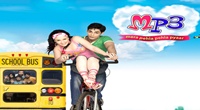
Kiran Bedi Full HD Movie Download
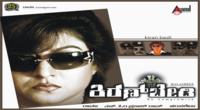
Zulm Ki Zanjeer Full HD Movie Download
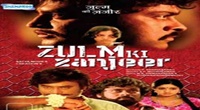
Prem Aggan Full HD Movie Download

Michael Madana Kamarajan Full HD Movie Download

Prince (1969) Full HD Movie Download
.jpg)
Apna Hath Jagannath Full HD Movie Download
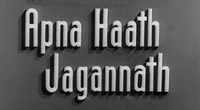
Dil Dosti etc. Full HD Movie Download

Shirdi Sai Baba Full HD Movie Download
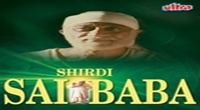
Key Club Full HD Movie Download
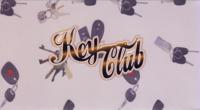
Mohabbat (1997) Full HD Movie Download
.jpg)
Bhairavi (1996) Full HD Movie Download
.jpg)
Dholi Taro Dhol Vaage Full HD Movie Download
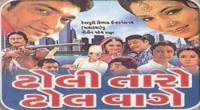
Bhale Master Full HD Movie Download
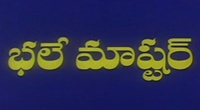
Final Destination 3 Full HD Movie Download
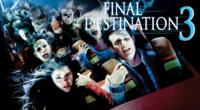
The Exorcist Full HD Movie Download
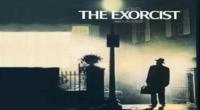
Coyamuthur Maaplaey Full HD Movie Download

Soori Full HD Movie Download

Nagastram Full HD Movie Download
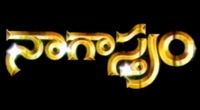
Prema Paga Full HD Movie Download
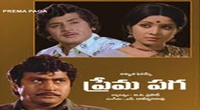
Tenali Ram Krishna Full HD Movie Download
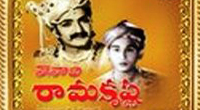
Download latest Movie from bollywood
- 1> baaghi 3
- 2> THE SKY IS PINK MOVIE FULL STORY AND REVIEW
- 3> Luka Chuppi
- 4> TO ALL THE BOYS I’VE LOVED BEFORE
- 5> Kabir Singh
- 6> Street Dancer 3D
- 7> Simmba
- 8> Gone Girl
- 9> The Girl Who Lived
- 10> Ludo
- 11> DILWALE DULHANIA LE JAYENGE
- 12> GUILTY
- 13> The Godfather
- 14> Adventures of Rusty
- 15> Sooryavanshi
- 16> Satyameva Jayate 2
- 17> Thappad
- 18> Bhool Bhulaiyaa 2
- 19> KGFChapter 2
- 20> Mardaani 2
- 21> Pinjar
- 22> Shivaji maharaj
- 23> Ek Villian 2
- 24> Hungama 2
- 25> Divergent
- 26> Mumbai Saga
- 27> The Internship
- 28> HIT (telugu)
- 29> Panga
- 30> The perfect date
- 31> 16 December
- 32> Gopala Gopala (Telugu)
- 33> Brahmastra
- 34> Gangubai Kathiawadi
- 35> Manmadhudu
- 36> Nenu local
- 37> Mahanati
- 38> Shatamanam bavathi
- 39> Lagaan
- 40> After
- 41> MOM
- 42> Shamshera
- 43> Raguvaran BTech
- 44> Khakee
- 45> The villain
- 46> OM
- 47> Mr. perfect
- 48> Bueatifull mind
- 49> Hichki
- 50> Gabbar Singh
- 51> Jogi
- 52> Before Sunrise
- 53> Before Sunset
- 54> Before Midnight
- 55> The Big Bull
- 56> Top Gun: Maverick
- 57> The Purge
- 58> The Sky is Pink
- 59> Laxmmi Bomb
- 60> Sadak 2
- 61> Sufna
- 62> Prithviraj
- 63> PK
- 64> Coolie No 1(2020)
- 65> Black Widow
- 66> Dear Zindagi
- 67> Dil Bechara
- 68> PHIR HERA PHERI
- 69> WAR
- 70> Dostana
- 71> RRR: Roudram Ranam Rudhiram
- 72> Maidan
- 73> Dabbang 3
- 74> Chhalaang
- 75> life as we know it
- 76> SherShaah
- 77> Sandeep Aur Pinky Faraar
- 78> Event Horizon
- 79> 83
- 80> Radhe: Your Most Wanted Bhai
- 81> Gunjan Saxena: The Kargil Girl
- 82> Mr India
- 83> Vivah
- 84> Anokha Bandhan
- 85> Ghost
- 86> Bhoot: Part One - The Haunted Ship
- 87> Haseen Dilruba
- 88> Laal Singh Chaddha
- 89> Qismat
- 90> Rajput
- 91> Drive
- 92> Dil Chahta Hai
- 93> Dil Ki Baazi
- 94> Dil Ka Rishta
- 95> Teesri Manzil
- 96> Dil
- 97> Love Aaj Kal
- 98> Khaali Peeli
- 99> Bunty Aur Babli 2
- 100> Atrangi Re
- 101> Gulabo Sitabo
- 102> Jodi
- 103> Suraj Pe Mangal Bhari
- 104> Deewana
- 105> Attack
- 106> Sardar Udham Singh
- 107> Toofan
- 108> THE LOVEBIRDS
- 109> Jersey
- 110> Ginny Weds Sunny
- 111> Thalaivi
- 112> Shiddat
- 113> Angels vs Zombies
- 114> Koi Mil Gya
- 115> Thank God
- 116> Bhuj: The Pride of India
- 117> Hum Aapke Hain Kaun
- 118> The Platform
- 119> Bird Box
- 120> Roohi Afzana
- 121> Torbaaz
- 122> Nikamma
- 123> World War Z
- 124> Extraction
- 125> Train to Busan
- 126> Life of Pi
- 127> SHAADI MEIN JROOR AANA
- 128> Himmat Aur Mehnat
- 129> To All The Boys: P.S. I Still Love You
- 130> Mimi
- 131> Good Newwz
- 132> Shubh Mangal Zyada Saavdhan
- 133> Raabta
- 134> Harry Potter and the Philosopher's Stone
- 135> Harry Potter and the Chamber of Secrets
- 136> Chhapaak
- 137> War of the Worlds
- 138> Harry Potter and the Prisoner of Azkaban
- 139> Harry Potter and the Goblet of Fire
- 140> MURDER MYSTERY
- 141> Shakuntala Devi
- 142> Bachchan Pandey
- 143> Jayeshbhai Jordar
- 144> Sheer Qorma
- 145> Saina
- 146> 'O' Pushpa I hate tears
- 147> Kedarnath
- 148> MS Dhoni The Untold Story
- 149> Chhichhore
- 150> Badhaai Ho
- 151> Unstoppable
- 152> Oz the Great And Powerful
- 153> The Girl on the Train
- 154> Haathi Mere Saathi 2020
- 155> The Conjuring: The Devil Made Me Do It
- 156> Gandhi Se Pehle Gandhi
- 157> The Song of Scorpions
- 158> Srimanthudu
- 159> Hello Guru Prema Kosame
- 160> Beauty and The Beast
- 161> Black Panther
- 162> Charlie and the Chocolate Factory
- 163> Bole Chudiyan
- 164> Fidaa
- 165> Duvvada Jagannadham
- 166> Bruce Lee: The Fighter
- 167> Hyper
- 168> Yaara
- 169> Red (2020)
- 170> Shivam
- 171> That Is Mahalakshmi
- 172> Nishabdham
- 173> Aashram 2020 web series
- 174> Laxmii
- 175> Mismatched
- 176> STUDENT OF THE YEAR 2
- 177> NAIL POLISH
- 178> Ramprasad Ki Tehrvi
- 179> KAAGAZ
- 180> 12 o Clock
- 181> The Power
- 182> bolo hau
- 183> Tribhanga
- 184> JAMUN
- 185> Madam Chief Minister
- 186> Maasaab
- 187> Aadhaar
- 188> Tanhaji
- 189> Bhaagi 3
- 190> Bhootnath
- 191> MALANG
- 192> Jai Mummy Di
- 193> Haathi Mere Saathi 2021
- 194> Shakeela
- 195> Unpaused
- 196> Annayya
- 197> Vamsoddharakudu
- 198> Mrugaraju
- 199> Narasimha Naidu
- 200> Sankranti
- 201> Manasu Maata Vinadhu
- 202> Anjaane
- 203> Apaharan
- 204> Bachke Rehna Re Baba
- 205> Bewafaa
- 206> Roohi
- 207> Radhe
- 208> Zindagi Khoobsoorat Hai
- 209> Yeh Mohabbat Hai
- 210> Yeh Kya Ho Raha Hai?
- 211> The Tomorrow War
- 212> DehradunDiary
- 213> Meri Shaadi Karaoo
- 214> Matruu Ki Bijlee Ka Mandola
- 215> No One Killed Jesica
- 216> Aag Ka Goola
- 217> Eight Million Dollars
- 218> Three Hundred
- 219> Cats and Dog
- 220> Decoy
- 221> Gold Rush
- 222> You Have Got Mail
- 223> Final Destination three
- 224> Tofan
- 225> Jungle
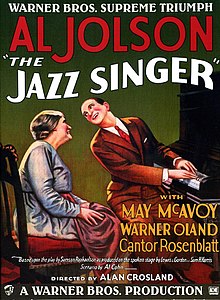 Story of movie The Jazz Singer :
Story of movie The Jazz Singer : 